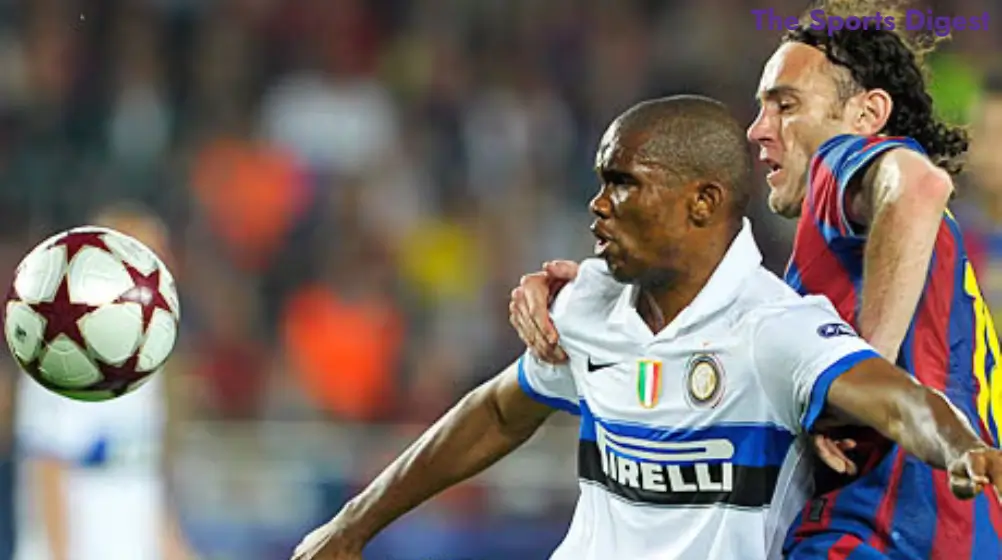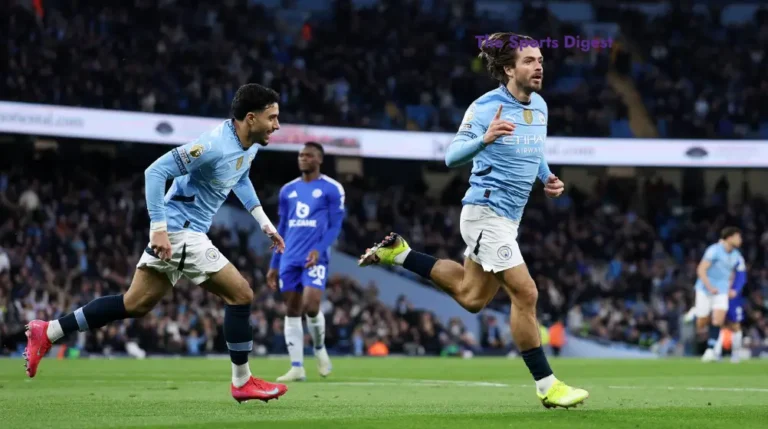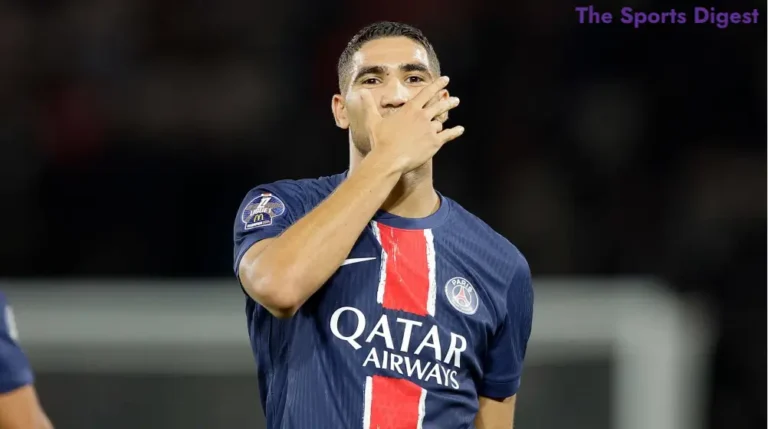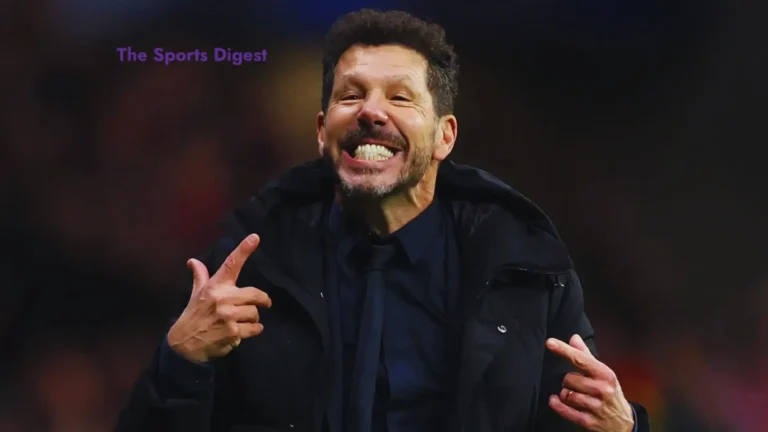UEFA League: Analyzing Barcelona vs. Inter 2010
The 2010 UEFA League semi-final between Barcelona and Inter Milan is regarded as one of the greatest tactical battles in football history. The second leg, held at Camp Nou on April 28, 2010, was more than just a match—it was a clash of philosophies. Pep Guardiola’s tiki-taka, based on possession and quick passing, faced José Mourinho’s defensive fortress, built on tactical discipline and resilience.
Inter entered the game with a 3-1 advantage from the first leg, forcing them to focus on deep defending and limiting Barcelona’s attacking space. Despite Barcelona’s dominance, Inter held firm, even after Thiago Motta’s red card in the 28th minute. In the end, Mourinho’s men secured a historic qualification to the final, sparking emotional celebrations.
Table of Contents
UEFA League: Barcelona at Their Peak, Inter Chasing Glory
Barcelona entered the clash as the defending champions, playing exceptional football under Pep Guardiola. With a golden squad featuring Lionel Messi, Xavi, Iniesta, Puyol, and Piqué, they were considered nearly unstoppable, dominating both domestically and in Europe. Their tiki-taka style had revolutionized football, making them the favorites to reach the final once again.
On the other hand, Inter Milan, under the tactical genius of José Mourinho, was experiencing a golden era with stars like Diego Milito, Samuel Eto’o, Wesley Sneijder, Javier Zanetti, and Maicon. The Italian giants had already secured a crucial 3-1 victory in the first leg at the San Siro, giving them a strong advantage. Knowing they faced one of the best attacking teams in history, Inter arrived at Camp Nou fully prepared to fight for their place in the final. Their mission was clear: defend with discipline, frustrate Barcelona’s attack, and seize their moment in history.
Match Details: Early Red Card and a Tactical Masterclass
Barcelona started the game with immense attacking pressure, dominating possession and creating numerous chances. The match seemed to be tilting in their favor when Inter’s Thiago Motta received a red card in the 28th minute, leaving the Italian side with just ten men. Many believed this moment would pave the way for a historic comeback by the Catalans, as the numerical advantage offered them a perfect opportunity to break through Inter’s defense.
However, José Mourinho had a different plan. Demonstrating his tactical brilliance, he quickly adapted his team’s formation to a 4-5-0 defensive setup. The entire Inter squad dropped deep into their own half, forming an almost impenetrable wall around their goal. Meanwhile, Diego Milito was left as a lone striker, tasked with holding up the ball and offering a threat on the counterattack. Inter displayed extraordinary defensive discipline, closing down passing lanes and nullifying the influence of Xavi and Iniesta. Messi, who had been Barcelona’s key player, found himself increasingly isolated and frustrated, as the Italian side made life incredibly difficult for him. Despite relentless pressure from Barcelona, Inter held firm and maintained their advantage.
Champions League: Piqué’s Goal and Inter’s Historic Qualification
Despite Barcelona’s dominance in possession, they struggled to break down Inter’s resolute defense. Wave after wave of attacks came from the Catalans, but they were repeatedly thwarted by the well-organized Italian side. It wasn’t until the 84th minute that Gerard Piqué finally found the back of the net, scoring a brilliant goal that gave Barcelona a glimmer of hope. The Camp Nou erupted, and the belief in a historic comeback grew stronger.
However, despite the late goal, Barcelona could not find another to level the aggregate score. Inter’s defense remained unyielding, and even with a few moments of tension, they held their ground. The match ended 1-0 in favor of Barcelona, but with the 3-2 aggregate scoreline, it was Inter Milan who advanced to the final. Mourinho’s tactical brilliance and his team’s disciplined performance ensured their place in history, leaving Barcelona and their fans devastated.
Champions League: Celebrations and Aftermath
After the final whistle, Inter Milan players erupted in celebration on Camp Nou’s pitch, visibly overjoyed by their historic achievement in the Champions League. José Mourinho, ever the showman, ran toward the fans with his arms raised, signaling that his team had made history by overcoming one of the greatest sides in football. This victory was far more than just advancing to the final—it was a tactical masterstroke that left Barcelona stunned.
Despite their dominance in possession, Guardiola’s side struggled to break through Inter’s defensive fortress. Mourinho’s defensive setup had neutralized their attacking brilliance, and Guardiola was left searching for answers. For Inter, it was a triumph of discipline, resilience, and strategic brilliance in the Champions League.
Champions League: Impact on Both Teams’ Futures
- Barcelona: Despite their dominance in possession, Guardiola realized that tiki-taka alone wasn’t enough to guarantee victory. Inter’s disciplined defense exposed the limitations of his approach. This match forced him to rethink his strategies and consider new ways to break down resilient defenses in the future.
- Inter Milan: Inter Milan went on to defeat Bayern Munich at the Santiago Bernabéu, securing a historic treble. The victory in the final cemented Mourinho’s tactical genius and the team’s resilience. It marked one of the greatest achievements in the club’s history..
- Mourinho: Mourinho proved himself as the best tactician of that era, earning widespread acclaim for his strategic brilliance. His success with Inter Milan paved the way for his move to manage Real Madrid. There, he continued to demonstrate his mastery of the game, solidifying his legacy..
Champions League: Lessons from the Match
- Tactical flexibility can be the key to victory, as Mourinho demonstrated.
- Possession does not guarantee control—solid defense can sometimes be the best strategy.
- Managing a game under pressure is a crucial skill in football.
Conclusion
This match remains one of the greatest tactical duels in UEFA Champions League history, a night where strategy and discipline triumphed over possession and flair. Inter Milan’s defensive resilience under Mourinho’s guidance was nothing short of remarkable, securing them a place in the final. For Barcelona, it was a harsh lesson in the importance of adaptability and breaking down well-organized defenses. Despite their dominance, they failed to unlock Inter’s defensive block, leaving Guardiola frustrated. The game marked a historic triumph for Inter, while Barcelona’s dreams of a comeback were dashed. It became a defining moment in football history, remembered by fans for years to come.
Have you ever read an article like this?
There are no reviews yet. Be the first one to write one.






